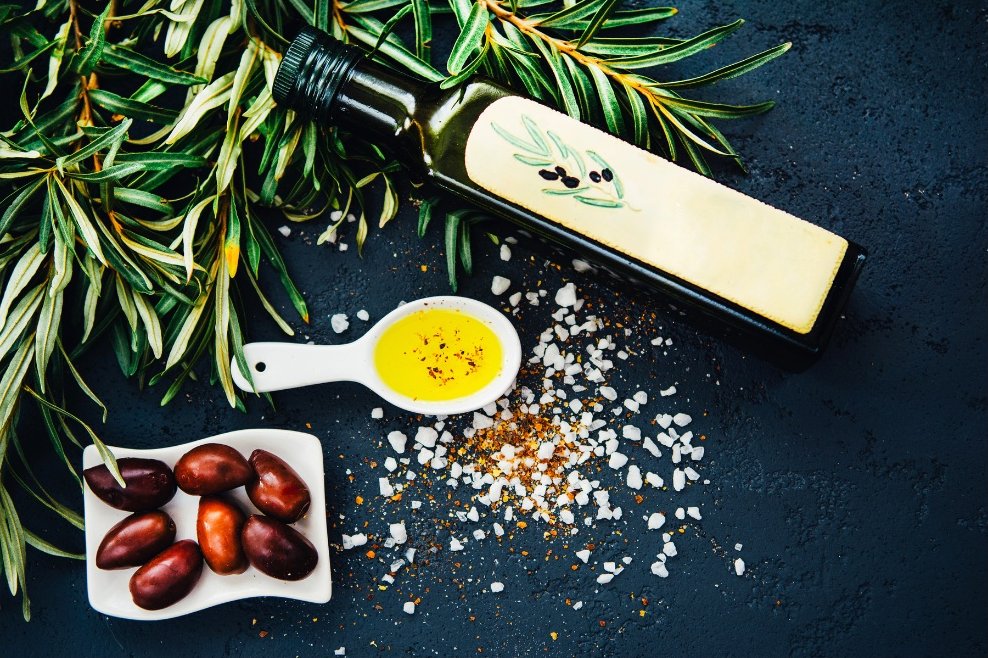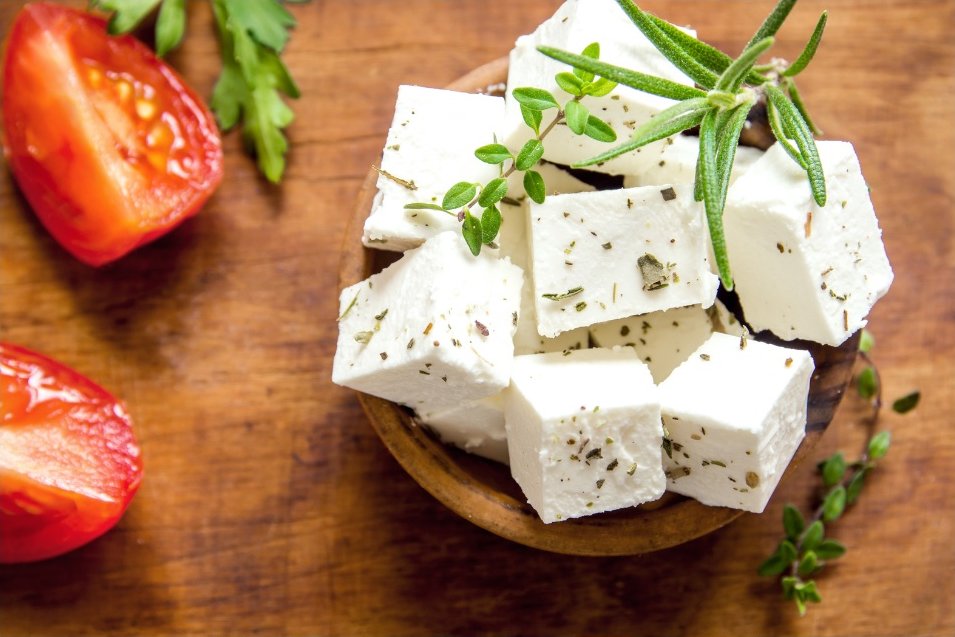High in Nutrients
Antioxidant Packed
Packed with Superfoods
Fabulously Fresh
Herbs and Spices
Sneak in Your Probiotics
Minimally Processed Ingredients
Vegetarian Friendly
Variety is the Spice of Life
The Mediterranean Way
Follow The Mediterranean Diet the Easy Way
There is a reason Greek food has been voted the number two cuisine in the world – narrowly losing the number one spot to Spain – and that everyone seems to have their favorite local Greek restaurant near them, like Souvlaki Bar in Long Island and Astoria. And it’s not just because Greek cuisine packs a flavorful punch in every bite!
Greek food is more than just delicious. It is actually good for you! Unlike other convenient fast foods and takeaways, Greek dishes are naturally healthy and filled with a variety of superfoods that are high in nutrients and rich in antioxidants due to its emphasis on loads of fresh veggies and herbs.
But don’t just take our word for it, take a look at the top 10 reasons why Greek food should be your healthy go-to choice for a convenient meal on the go.

High in Nutrients
Greek cuisine is naturally high in nutrients like omega-3 fatty acids thanks to the nations love of olive oil. Olive oil has been proven to protect against heart disease, the number one cause of death in the world. This is thanks to its anti-inflammatory properties that aid in lowering blood pressure which is one of the leading contributors to heart disease.
Olive oil can be found in almost all of your favorite Greek dishes, including tzatziki, hummus, spanakopita, dressings, marinades and everything in between!
Whole grains are another nutrient dense staple of a Greek diet, providing fiber, vitamins and minerals through classic dishes like rice pilaf and dolmades (stuffed grape leaves).
Consuming whole grains has been proven to decrease your risk of inflammation, heart disease and type 2 diabetes.
The classic Greek diet is also packed with loads of fresh vegetables, which have been proven to lower blood pressure, reduce the risk of heart disease and stroke, prevent some types of cancer, lower risk of eye and digestive problems, and have a positive effect upon blood sugar, which can help keep your appetite in check.

Antioxidant Packed
The amazing health benefits of Greek food have frequently been attributed to its use of high antioxidant ingredients like fresh vegetables, lots of herbs and olive oil.
Antioxidant rich ingredients like spinach, fresh oregano and parsley, grape leaves, lemons and tomatoes can be found in Greek favorites like, horiatiki salad, spanakopita (spinach pie), dolmade (stuffed grape leaves) and tzatziki (yogurt and cucumber-based dip) to name just a few.
The beneficial health effects of eating an antioxidant rich diet includes a reduced risk of several chronic diseases, including cancer, Parkinson’s disease, Alzheimer’s disease, type 2 diabetes and cardiovascular disease. Some have even linked it to preventing depression.
Packed with Superfoods
Superfoods are nutritionally dense foods – mostly fresh veggies and fruits, but also some lean meats and diary – that are jam packed with essential nutrients and antioxidants that help to protect your body from oxidative stress. Simply put, superfoods protect your cells and your body from heart disease, diabetes, cancer and all the bad free radicals that cause these diseases. And Greek food is naturally packed with these superfoods!
Lemon plays a key role in Greek cuisine- squeezed over salads, meat and fish or mixed in with tzatziki and hummus. Lemon has a beneficial impact on blood glucose, helping to control or prevent diabetes and gives you a super dose of vitamin C.
Garlic is another superfood that is an essential ingredient of all Mediterranean cuisines. Almost every single Greek dish will contain some form of garlic, from Tzatziki to souvlaki and moussaka. Garlic’s health benefits include anticancer, antioxidant and anti-inflammatory effects.
Greek cuisine also relies heavily on its use of fresh herbs, another great superfood. Fresh oregano is undoubtedly the star of fresh herbs used in Greek cooking, and can be found sprinkled over salads, in stews, marinades and dressings. Other superfood herbs used in Greek cuisine include mint, dill, thyme and parsley.
Herbs contain antioxidant and anti-inflammatory compounds, especially polyphenols. In Greek cuisine, herbs contribute to the overall intake of flavonoids that help to reduce blood clots and provide anti-inflammatory and anti-tumor properties.

Fabulously Fresh
By now you should have gotten the idea that Greek food is largely based on fresh ingredients like loads of veggies and fresh herbs. A diet rich in fresh fruits and vegetables are the key to a healthy lifestyle, as they have been proven to improve your overall health by lowering cholesterol, helping to maintain a healthy weight and lowering your risk of cardiovascular disease.
So next time you are looking for a healthy nutrient dense fresh meal order yourself some falafels and tzatziki with a helping of Melitzanosalata and a fresh horiatiki salad drizzled with heart healthy olive oil!

Herbs and Spices
Fresh herbs and spices are a key ingredient to a healthy balanced diet, and Greek cuisine is packed with a wide variety of fresh herbs in almost every dish!
Greek cuisine primarily uses oregano, mint, garlic, onion, dill, and bay leaf, along with the addition of basil, thyme, fennel seed, and parsley.
Oregano is by far the most common of all the Greek herbs. It is sprinkled on top of salads, used in soups, included in marinades for meat, and is always present at the table so you can shake on a little extra.
Mint is a surprising key ingredient in many top Greek recipes. It pairs well with ground meat, and you will often see mint in recipes for Greek meatballs (keftedes) and stuffed grape leaves (dolmades). Some even put it in other dishes such as spanakopita (Greek spinach pie).
Thyme is another herb that is used a lot in Greek cooking. Often considered a stand in for oregano, it’s common to see the two herbs used interchangeably, depending on which version of a recipe you decide to follow.
Bay palm, the tree where bay leaves come from, grows very well in Greece. As a result, it is a very popular ingredient used in Greek cooking. It is primarily included as a flavoring in soups, stews, or braised meat or vegetable dishes.
Incorporating all, or even just some, of these amazing fresh herbs in your diet is a great way to get some extra nutrients and antioxidants and can help to reduce blood clots and lower cholesterol.

Sneak in Your Probiotics
Adding yogurt and healthy dairy like feta cheese to your diet is a great way to incorporate extra healthy proteins and probiotics. Yogurt has been proven to have many positive benefits, including improving metabolism, reducing inflammation, preventing infection, and improving pregnancy outcomes by decreasing preterm birth.
Tzatziki, the famous yogurt-based cucumber dip, is a staple of Greek cuisine and can be enjoyed with souvlaki, as a dip for veggies or enjoyed with falafels. Tzatziki is also considered a healthier dip than hummus and sour cream! It contains several vitamins, a good amount of protein, and fewer carbohydrates and calories. The fat content of tzatziki is low too, which is not the case with other dips. Thus, you can opt for tzatziki dips over other dips
Traditional feta cheese is fermented, which also makes also makes it rich in probiotics, giving you the same health benefits as yogurt as well as added protein in the mostly vegetarian based Greek diet!
Minimally Processed Ingredients
There is a reason why our modern lifestyles contribute to an ever-growing rate of heart disease, cancer and diabetes -processed foods.
Processed foods tend to have a long shelf life, thanks to the added sugar, salt, and preservatives, often leaving it stripped of nutrients, but making it convenient, yet ultimately extremely unhealthy.
Minimally processed ingredients and foods, as found in a Greek or Mediterranean diet can help with a variety of modern-day ailments, including, weight loss, clear skin, brighter eyes, stronger nails, more energy, better moods, better sleep and ultimately lead you to start craving healthier foods and leading a healthier lifestyle.

Vegetarian Friendly
A traditional Greek meal conjures up images of a juicy leg of lamb, bite sized chicken souvlaki and out -of-the-oven bubbling moussaka. But Greek food definitely does not revolve around meat, and most of the popular classic Greek dishes are entirely vegetarian or even vegan!
Most tasty traditional dishes are meat-free, making Greek cuisine a vegetable filled, healthy and nutritious favorite amongst all veggie lovers! Just think about some of your Greek favorites, like falafels, hummus, tzatziki, spanakopita, yip they are all meat free vegetarian friendly options.
An interesting fact about Greek cuisine is that vegetarianism actually has its roots in ancient Greece. In later years, when meat became more widely consumed, it was still only reserved for the very wealthy and was considered a luxury. The average Greek would only eat meat once or twice a year, but an abundance of fruits and vegetables daily. Just like they do now!

Variety is the Spice of Life
It really is true that variety is the spice of life. Which is also a leading factor in why Mediterranean diets have so many proven health benefits, as there are so many different great Greek foods to try!
Traditional Greek dishes include a wide array of nutrient dense fresh superfoods like, garlic, oregano, eggplant, chickpeas, yogurt, feta cheese, dill, lemon and olive oil.
Eating a simple traditional Greek meal of falafels with tzatziki or Melitzanosalatat (Greek eggplant dip) with a horiatiki salad and a side of potatoes covers all of the major food groups in one meal! With so many flavors and dishes to choose from you might even start asking yourself “is Greek food healthy?”, yes it definitely is!
The Mediterranean Way
Following a Mediterranean diet, like that of Greek cuisine, has numerous health benefits and is exceptionally easy to follow, whether you are cooking at home or indulging at your favorite Greek spot, like SVL Bar in Astoria or long Island.
By incorporating Greek staple ingredients like vegetables, herbs, olive oil, and lean meats in your diet, you will provide your body with a full nutritious balance by covering all of the major food groups and incorporating diverse flavors in your diet, making sure you don’t get bored of eating the same meal over and over.
In short, a Greek diet has numerous undeniable health benefits, due to its focus on fresh produce and herbs, making it a nutrient dense, superfood and antioxidant packed choice that will leave you feeling great!

Follow The Mediterranean Diet the Easy Way
On the other hand, if you are looking to follow a Greek diet at home it can have some drawbacks. Eating a diet based on fresh fruits and vegetables and lean high-quality meats like salmon can add up at the cash register, and taking the time out of your day to properly meal plan and prepare all of your fresh foods can be unrealistically time consuming in a busy modern life.
But luckily there is always your favorite Greek joint just around the corner! If you are in Astoria or Long Island, check out SVL Bar and how easy and convenient adding healthy and fresh Greek food to your diet can be!
Souvlaki bar prides itself on not just having food that’s good for you, but also food that’s good for the planet. And that’s why their classic Greek souvlaki and yeeros contain local healthy ingredients, hormone-free meats, and fresh produce.
If you are looking for a Greek restaurant in NYC to incorporate a healthy Mediterranean diet in your lifestyle, simply visit SVL Bar at one of their 2 locations in for the best Greek food in Astoria or long Island or use the Toast App to place your order online today for a healthier lifestyle!




